is there a formula for ‘the finest in fiction’?
They say that everyone carries a book within them. But how about a Booker Prize? That’s likely to be what the six shortlisted authors for the 2022 Booker Prize will be asking themselves as they count down the days until the live-streamed awards show.
On Monday, October 17, amidst the opulent surroundings of a crowded Guildhall, one of them will be crowned the 54th winner of a literary prize with her novel, widely regarded as the most prestigious, lucrative – and controversial – in the country.
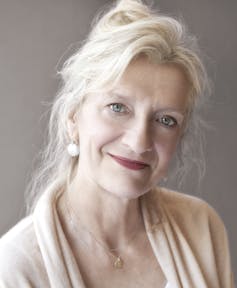
Leonard Cendamo/Flickr
The Booker Prize, first awarded in 1969, selected annually an outstanding work of long fiction published in English in the UK during the previous calendar year. In a move towards inclusion, an international award for authors of books translated into English was introduced in 2005, and in 2014 its main English language award was changed to include books written by authors from around the world.
Since then it has produced literary heavyweights such as Bernardine Evaristo, Anne Enright, Julian Barnes and the late Hilary Mantel. Annually, it attracts worldwide attention. In 2020, none other than former US President Barack Obama was present at the (virtual) award ceremony.
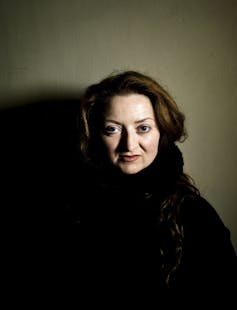
Frederic Stucin/Flickr
But the booker also regularly causes controversy. In recent years he has proven so unpredictable that even one of his winners compared the literary prize to a “chicken raffle”. Borrowing from an Australian custom of raffling off poultry as a fundraising activity, the phrase suggests that luck rather than talent is the key to winning the prize.
The unpredictability of the price stems in large part from some somewhat vague criteria. According to its rules, the Booker Prize aims to spotlight “the best of fiction”. But what does that actually mean? Using the power of mean average (and with a little help from Excel) I turned that soundbite into some cold hard stats. Based on every winner since the turn of the millennium, here’s a snapshot of the average Booker winner. Attention nominees…
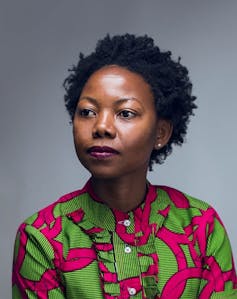
NyeLynTho/Flickr
The average book
A 581 gram (equivalent to a large yam) 408-page hardcover, issued by Bloomsbury in May ahead of the awards ceremony. It’s historical fiction set sometime in the 1980s in and around London (the capital appears four times more often than any other city in the list of recent Booker winners).
It explores the themes of time and memory, love and loss, and family dynamics. It features an introspective protagonist, one with a career in the creative industry who is something of a social outcast, and is told in the past tense from either the first-person or third-person perspective. The novel contains several points of view, many of which are unexpected: think of the recently deceased or of a herd of grazing cattle. It is sparse on punctuation and heavy on political satire. Colonialism and its aftermath are important topics of interest. Oh, and it also has a nice mid-blue front cover.
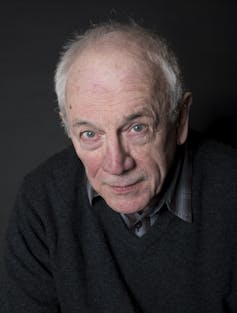
David Heke/Flickr
The average author
White British Male, 51 years and 6 months old. Yes, despite recent efforts to be more inclusive, the average Booker-winning author still fits the writing stereotype of male, pale, and stale. (In the past, men have been more than twice as likely to win as women, although this year’s shortlist is gender balanced.)
The author has had an established career, with a literary output of six books and a previous Booker shortlist. They also enjoy trying their hand at other mediums, particularly poetry and screenwriting. They’re Gemini too—since 2000, those born under the sign of Gemini have won twice as often as chance would suggest. Must be written in the stars.
Working out winners
So what do all these stats say about this year’s shortlist? Bookmakers odds currently see Alan Garner’s Treacle Walker as a 3/1 favorite and the novel certainly ticks several boxes, from its exploration of time and memory – its motto is ‘Time is ignorance’ – to its gorgeous blue cover.
Despite Glory’s orange-pink cover art, things are looking rosy for NoViolet Bulawayo too – she’s the only writer of the six to have been shortlisted previously.
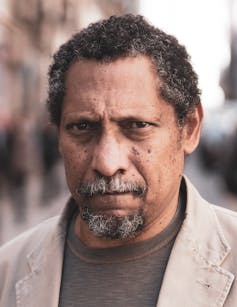
Nacho Goberna/Flickr
Less likely is a win for Percival Everett’s The Trees. It’s a hybrid of crime and dark comedy, two genres that have traditionally failed.
This is also the case with Elizabeth Strout’s Oh William!: No “trequel” has ever won (nor has a novel with an exclamation mark in the title).
Claire Keegan’s Small Things Like These, set at Christmas 1985, ticks all the boxes, but at just 116 pages (238g) its lack of weight will likely speak against it.
Personally, I’d bet on Shehan Karunatilaka’s The Seven Moons by Maali Almeida. Historical fiction? Check. A deep past tense dive into recent postcolonial trauma? Check. Narrator as creative (photographer), outcast, ghost? Check, check, check. It even includes the lucky number seven, the only number ever to appear in the title of a Booker-winning work.

The Booker/Flickr.
As a serial player, Maali knows that “the odds of winning the lottery are one in eight million.” In the Booker Prize “chicken draw,” those odds drop significantly to one in six, or possibly even more, judging by past patterns.
Will the Booker-winning book on the shelf be a repeat in 2022? Only time – less than seven moons – will tell.